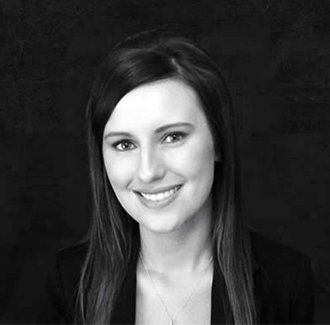How can I bring successful medical negligence claim?
Posted in [Resources] on Monday, March 15th, 2021
Medical negligence is an extremely complex area of law. As a consequence, it can be very difficult to bring a successful claim. My boss, Mr. Ernest Cantillon, likens the whole process to entering the Grand National horse race, with many hurdles that need to be jumped to reach the finishing line, namely, vindication and financial compensation secured in Court or on foot of a settlement.
At Cantillons Solicitors, we are experienced medical negligence solicitors and indeed the team received the inaugural award of Litigation Team of the Year in recognition of this.
What does a claimant need to prove to bring a successful medical negligence case?
There are two elements to any medical negligence case:-
A. Breach of Duty
B. Causation
A. Breach of Duty
A doctor has a duty to take reasonable care of his patient. A doctor will breach this duty if he does not provide care which conforms to the standard reasonably expected of a competent doctor. It is not enough to say that another doctor would have acted differently, what must be categorically said is that no other doctor acting reasonably would have acted likewise.
This must be said by an appropriate expert doctor.
At Cantillons Solicitors we have put together, over the years, a panel of experts who are leaders in their respective fields of expertise.
However, before we commission a report from such an expert, we will employ our own expertise in reviewing our client’s records to ascertain if, in our view, there are areas of concern in the care afforded to our client. If we feel that a case is unlikely to succeed, we will advise our client accordingly at this early stage, without our client having incurred the expense of an expert report.
B. Causation
In order to proceed with a medical negligence claim, it is not just enough to be able to prove that the doctor was negligent. You must be able to link that negligence with the injury that you complain of. Once again, an appropriate expert must confirm this link. If that cannot be confirmed, then you cannot bring a case for medical negligence. A good example of how causation works is the case of Barnett v. Chelsea and Kensington Hospital Management Committee**. In this case a doctor was found negligent in not treating a night-watchman who complained of vomiting after drinking tea. He later died of arsenic poisoning. His widow’s claim failed on the ground that the workman would have died even if he had received all due care because the Judge concluded, on the evidence, that there was no chance that the antidote could have been administered in time.
Proof of Medical Negligence
The burden is on the person bringing the claim to prove his case against the Defendant Doctor. The standard to which he must do so is on the balance of probabilities, which requires him to establish that his version of events is more likely or more believable than the Defendant’s.
Time Limits in Medical Negligence
Unfortunately, this is a major stumbling block for many potential clients who contact us.The time limits within which a case can be taken is two years from the date of the accident/injury ( far too short a time period, in our view). There are exceptions and one of those is for somebody who did not have knowledge of the wrongdoing at the time the wrongdoing occurred and in those circumstances, the time may be extended. This is not straightforward however, so you should not delay in seeking legal advice if you feel that you have been a victim of medical negligence.
For further advice on these issues, please feel free to contact me, or another member of the team, here at Cantillons Solicitors.
Contact us at Cantillons Solicitors at +353 (0)21 -4275673 or info@cantillons.com if you would like more information.
* In contentious business, a solicitor may not calculate fees or other charges as a percentage of any award or settlement.
**[1969]1 QB 428,MLC 0005

Associate
Experience
Amy joined Cantillons in 2013 having graduated with an Honours Bachelor of Civil Law Degree from University College Cork. She successfully completed her Law Society FE-1 Examinations and received an award for achieving the highest mark in the Law of Tort exam in the 2015 sittings. Thereafter she completed the Law Society Professional Practice Courses at Blackhall Place, Dublin.
Amy spent two years in the Medical Negligence Department working on various cases involving birth injuries, cancer misdiagnosis, surgical errors and fatal claims.
Amy is currently working in the General Litigation Department and advises clients in relation to all aspects of civil litigation; to include personal injury claims, accidents at work, road traffic accidents, public liability claims, farming accidents, claims against local authorities and claims against the HSE. She has successfully represented clients before the District Court, Circuit Court, High Court, and Court of Appeal and has been involved in a number of high profile cases.
Amy is also a member of the Residential Tenancies Board Panel of Solicitors, enforcing RTB Determination Orders in the District Court.
Qualifications
Honours Bachelor’s Degree in Civil Law
Completed Law Society Professional Practice Courses at Blackhall Place, Dublin
 Back to post
Back to post